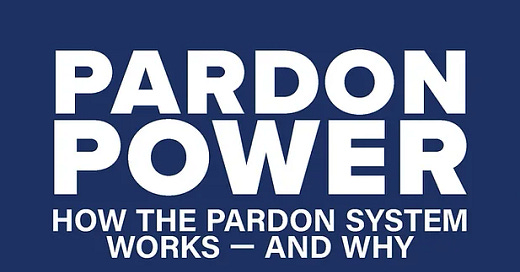Agency independence is under attack
Trump’s termination of internal watchdogs has broad constitutional implications
The first couple weeks of Trump’s second term have been nothing short of disastrous. Between issuing senseless executive orders, conducting mass firings, and completely mishandling the tragedy of the D.C. plane crash, Trump has yet to prove those who voted against him wrong.
But what we are not talking about enough are the individuals fighting back against him and taking a stand in the name of the Constitution and the rule of law.
This newsletter is my contribution to civic education. Please share it widely—and consider upgrading to paid. Thank you!
There are federal employees on Reddit who are encouraging each other to unite against Trump’s attacks. There’s an employment official at USAID who reportedly refused to carry out unlawful firings and was then placed on administrative leave. There are companies across the country flouting the message behind the executive order terminating DEI policies and instead publicly doubling down on their commitment to these policies.
And then there is Phyllis Fong, the Inspector General of the U.S. Department of Agriculture, who reportedly was forcibly removed from her office after she refused to follow Trump’s order that fired her and reportedly 16 other inspectors general (and ignored the requirement to give Congress a 30-day notice before acting on such terminations).
But, if you ask the Trump administration, these “rogue, partisan bureaucrats [who] have been relieved of their duties in order to make room for qualified individuals who will uphold the rule of law and protect Democracy.” A spokesperson for the administration said that Fong left on her own and was not escorted out by security.
When choosing to decide which version to believe, keep in mind that it was Fong’s office that opened an investigation into Elon Musk’s brain implant company Neuralink in 2022 after staff raised concerns about allegations of needless suffering and death caused by animal testing.
The USDA that Fong was responsible for as inspector general administers nutrition assistance programs, supports and regulates commercial farming and livestock production, and protects consumer food safety (thus its involvement in the recent listeria outbreak at Boar’s Head meats) and animal welfare (it’s at the center of managing the looming threat of a bird flu epidemic). She was not going to leave the American people at risk without a fight.
As I wrote in my recent article for The Bulwark, Trump’s decision to terminate Fong and the other inspectors general has far broader constitutional implications. It could be his first move in an attempt to overturn a 90-year-old precedent upholding Congress’s ability to create federal agencies with some independence from the president.
What are inspectors general?
Although the concept of an Inspector General dates back to the 1950s, the role was officially established and codified only after Congress passed the Inspector General Act of 1978. This act was passed in response to the “mismanagement of administrative programs and weaknesses within internal investigative units” revealed by the Watergate investigations.
The role of an inspector general (IG) is to expose all fraud, waste, and abuse that takes place in agencies under the executive branch. Under the Inspector General Act of 1978 (IGA), 12 different agencies received an IG, but since then, there are now a total of 73.
IGs are tasked with the responsibilities of “conducting audits and investigations relating to the programs and operations of its agency, and providing leadership and coordination and recommending policies for, and to conduct, supervise, or coordinate other activities to promote economy, efficiency, and effectiveness and preventing and detecting fraud and abuse in those programs and operations.”
Keep reading with a 7-day free trial
Subscribe to Simple Politics with Kim Wehle to keep reading this post and get 7 days of free access to the full post archives.



